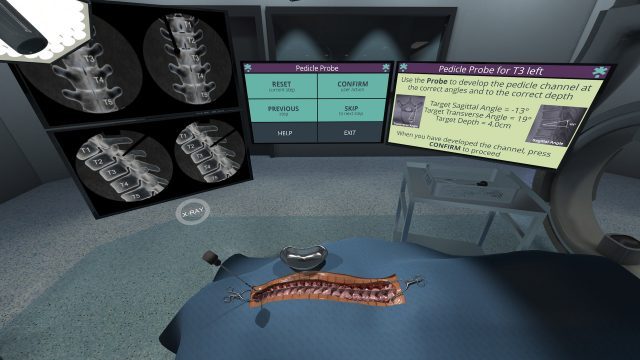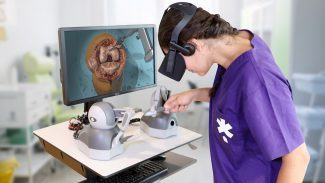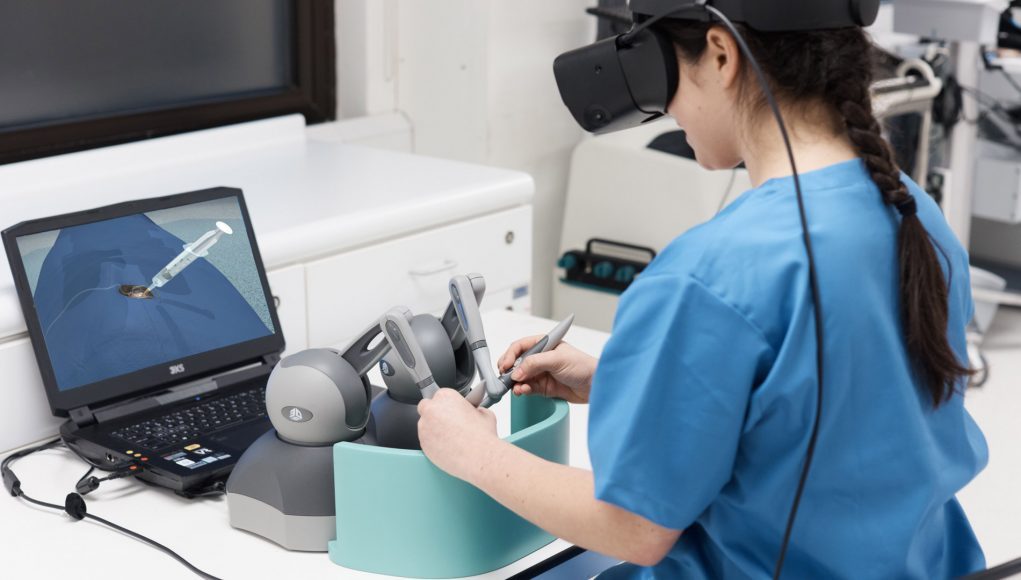VR surgical training platform FundamentalVR today announced it has raised a $20 million Series B investment to further expand its VR surgical training platform. The company is among a growing list of companies taking root in what appears to be a prime use-case for VR.
FundamentalVR today announced it has raised a $20 million Series B investment, bringing the company’s total fundraising to a purported $30 million. The round was led by EQT Life Sciences and prior investor Downing Ventures. As part of the investment, Drew Burdon of EQT Life Sciences will join FundamentalVR’s Board of Directors.
FundamentalVR says it combines high-fidelity medical simulations with VR and haptics so that trainees can “experience the sights, sounds, and physical sensations of real-life surgery.” The goal, says the company, is to make it more affordable for medical institutions to bring “professionally accredited surgical training [to] their organizations.”
According to FundamentalVR, the investment will be used to “enable further development of [the surgical training platform], the machine learning data insights product, and [drive] geographic expansion throughout the US.”
“Our platform can conduct a walkthrough of a procedure through to a full operation, facilitating surgical skills transfer—which is why we have been enthusiastically embraced throughout the medical industry, from med-device manufacturers to pharmaceuticals” says FundamentalVR CEO Richard Vincent. “Our immersive environments transform surgical skills acquisition in a scalable, low-cost, multiuser way. We are excited to scale our vision of creating a medical education environment unhindered by borders.”

VR surgical training is a growing use-case that appears to deliver significant return-on-investment for organizations that would otherwise pay for most costly and/or less effective and flexible methods of surgical training—and FundamentalVR is far from the first company to have bet on this.
One of the leaders in the space, Osso VR, has raised its own small fortune of some $109 million, according to Crunchbase, and has also demonstrated the efficacy of VR surgical training compared to traditional methods.

Surgical training specifically is just one slice of where VR is being used in the medical field.
We’ve seen the tech used to train ultrasound operators to identify fetal heart diseases, and recently in preparation for a rare and risky surgery to separate conjoined twins. And let’s not forget mental health, where VR is being used to create safe and accessible spaces for therapy.
Needless to say, these particular projects are just the tip of the iceberg when it comes to VR in medicine, a place where VR looks destined to be forever intertwined.







